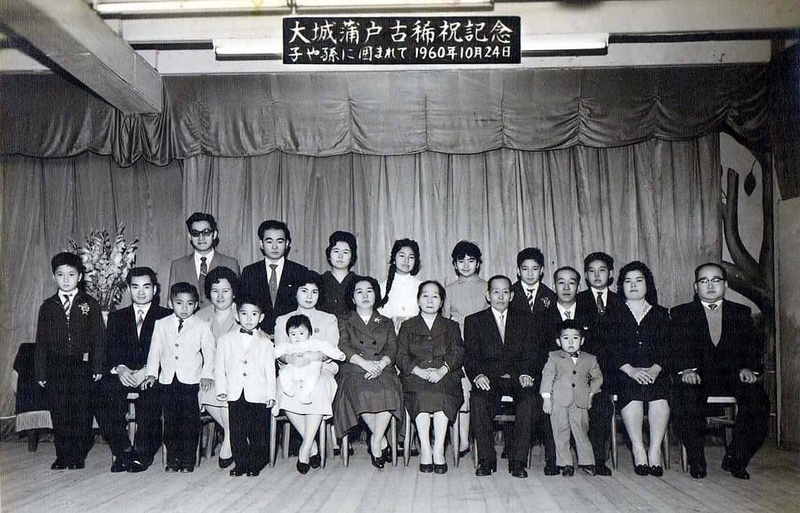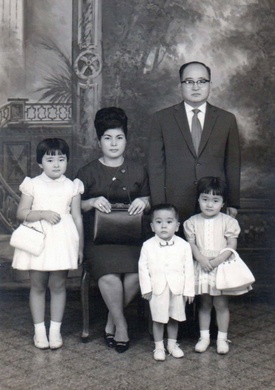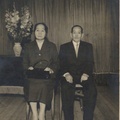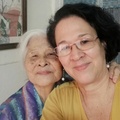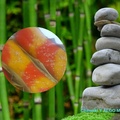The emigrant of Japanese origin and his descendants are called “nikkeis”. In my case, my ojí (grandfather) and obá (grandmother) on my mom and dad's side came from Japan, their children (my parents), their grandchildren (us) and the other descendants are Nikkeis.
The story is common to all of us, our grandparents came to Peru looking for a better future, like every immigrant. They had a hard life, with a lot of work, being discriminated against, abused, robbed, for being immigrants, for being Japanese, for being Nikkeis. Little by little this story changed. Their hard work, their values earned them appreciation and were seen as an example by many, although for some not so much. The ojís and obás came with the idea of collecting okane (money) and returning to their country.
Due to the circumstances that arose, what was expected could not be achieved and the stay became longer and longer. Initially they were a completely closed community (the grandparents' idea), even though many had already lost hope of returning. It is in the second generation (nisei), where a small group has in mind integration into the society that welcomed them, they were Peruvians, they felt that way, without losing their identity, taking into account where their roots came from. This was not seen very well by the Isseis (first generation), they began to participate in various fields outside of our community, gaining ground, notoriety, sponsored by the admiration they had for their parents, making their way. Training of professionals who stood out, at first in private companies, then in state entities, also in sports, coming to represent the country.
In 1990, a Nikkei dared something much bigger, to be the president of Peru, this was Alberto Fujimori. This situation polarized our country. It seems unbelievable, this surname continues to do so to this day. Taking advantage of the esteem that was held for the members of our community, for always being set as an example for the values with which we have been raised: honesty, respect, trustworthiness, sincerity, industriousness, order, perseverance, entrepreneurship; qualities that people see in us. In my opinion, the first reaction of our community was “not supporting” the Nikkei candidate. What the grandparents said about his refusal to integrate began to ring in our ears, because in the end we would be harmed, the voices of racism and marginalization would return. that they experienced, because it was like that, there was a campaign in which insults came from one side to the other, many of them making us feel like foreigners in our country.
I remember that campaign a lot, despite being in a very populous place like the Central Market of Lima and that “Chinito” was the people's candidate, while the other was that of the rich; Despite all that, I remember that it was an ordeal to be in the store, to endure people who passed by the store and when they saw that we were “Japanese,” they raised their voices to be heard, saying things like: “why don't you know?” They go to their country”; “they come to take food away from Peruvians”; “they want to put a Japanese president so that we can be their colony”; “they want to put a Japanese emperor”; so many offensive phrases.
At that time I was still single and was waiting for closing time to get a change of scenery. I remember going out with my friends and seeing that in other districts the little ones were also chased down the street for the sole reason of being “pulled”, there were even an ice cream parlor in Miraflores where they often refused to serve the “chinitos”, of course it was the youngest ones, they did not defend themselves and left terrified; Another anecdote was that a friend went shopping, paid and took home what he had bought, then was surprised that it was not complete; Just like those there were many comments, just to the Nikkeis in their request either they were wrong or something was missing, this happened on the other side of the city, the area of the wealthiest. Finally it happened, we had the first Nikkei president and many left as dekasegui in that period, in addition to the very serious economic crisis that we had, the package (named after the set of measures that justified all prices with a large increase), the lack of work.
Everything continued its course, the “Chinese” won, as everyone called him, in the second round, without a majority in Congress, with many difficulties in making laws in parliament, but with a growth in popular approval, from locals and foreigners. . Our Nikkei community began to support him, I'm sure many voted for him later in his re-election. It must also be recognized that it made many advances on all levels, but the question is: at what price? We must be honest in this answer.
For the Nikkeis in Peru, the feeling towards us has gone from hate to love and back again, this seems like a roller coaster in terms of esteem, taking us to the clouds and returning us to the ground.
So many things have happened in politics, many former presidents of different political groups have been involved, the Nikkeis also in this, in such a way that Keiko Fujimori, daughter of the former president, despite not having reached any position in the State , is also accused, like all former presidents, mayors and officials. But we cannot blind ourselves, the application of justice is not equal, because there are many who should have preventive detention and do not have it. She is accused of money laundering, along with Jaime Yoshiyama, now we see several Nikkei faces involved in corruption. The worst is in the case of Keiko Fujimori, mother of two daughters, who have to live without their mother and have to listen and see everything that is said about her.
If you are reading this article and you are Nikkei, reflect, our grandparents followed an exemplary life, with values that were transmitted to their children, our parents. They also taught them to us and we must do it with our children. That is why we must lead a life based on them, in all aspects, that is why, Nikkei friend, countryman, family member, if you are going to enter politics or any area of your life, please think carefully about everything you do. you do, always with your head held high so that you are not singled out by others, because your family, your countrymen and the Nikkeis in general will be judged by your actions.
If you, who are reading this article, are “non-Nikkei”, maybe you know me or maybe not, I only ask that when you make a comment, if you refer to a Nikkei character, that it be for their merits or their faults, but not because he is Nikkei, using racist phrases, because when you do it, you are also saying it to me. When you publish a meme or share it, where you say that he should go to his country because of his physical features, that means that you don't consider me from this country either. If you say that Keiko is the empress in reference to the emperor in Japan, it means that you also say it to my mother or sister because she is Nikkei. When you say that that Fujimori family should have dedicated themselves to what they really know, chifa, you are offending us and our Chinese and Tusan friends, who deserve more apologies, for having also been affected by a Nikkei character.
I'm tired of people approaching me and Nikkeis in general, and their first intention being to talk to us about Fujimori, who must return to prison, about the pardon and about Keiko who is in preventive detention. Friends, I am Nikkei, but I am not Fujimori. I completely agree that all culprits should be tried and convicted.
There are so many things that we Nikkeis carry, please understand us, understand that we are a country of multiple cultures and ethnicities, just like us, others also suffer as a result of racism.
© 2019 Roberto Oshiro Teriya


